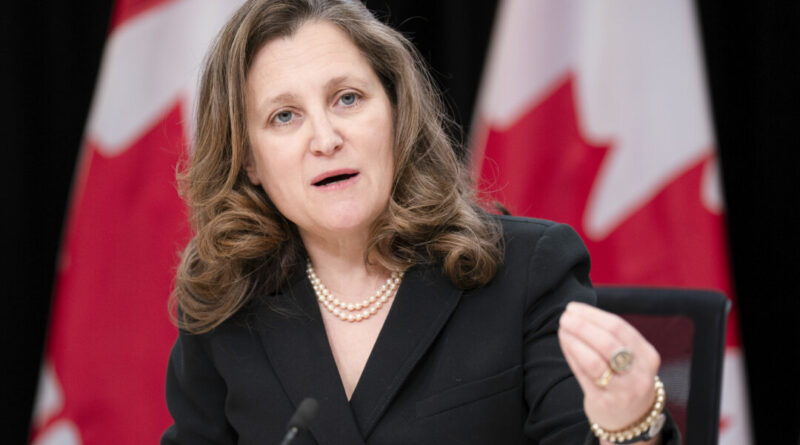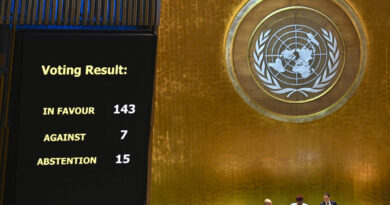Freeland Warns Against China Threatening Canadian Industry, Considers EV Tariffs
Deputy Prime Minister Chrystia Freeland emphasized the need to protect Canadian industry from Chinese “oversupply,” indicating that tariffs on Chinese electric vehicles (EVs) could be on the horizon, similar to the United States.
“We cannot let Canadian industry be wiped out by Chinese oversupply and overcapacity,” stated Ms. Freeland during a press conference on May 28, providing updates on her government’s economic plan.
Ms. Freeland’s sentiments align with Prime Minister Justin Trudeau’s previous comments, hinting at potential tariffs on China after observing the U.S.’s actions but not committing to similar measures.
“We are going to monitor the U.S.’s actions closely and determine how best to protect Canadian automakers, auto workers, and the economy as a whole,” Mr. Trudeau mentioned after meeting with U.S. Vice-President Kamala Harris on May 21 in Philadelphia.
Following U.S. President Joe Biden’s announcement on May 14 of raising tariffs on Chinese-made electric vehicles, Ms. Freeland expressed concern over Beijing’s economic policies contributing to overcapacity and oversupply in various sectors.
The White House elaborated that Chinese-made EV exports surged by 70 percent from 2022 to 2023, impacting productive investments elsewhere. In Canada, the increase in EV imports from China coincided with Tesla’s transition to manufacturing in Shanghai for Canadian sales.
With a goal of all new vehicle sales in Canada being zero-emission EVs by 2035, the federal government introduced a plan involving gradual steps and incentives for EV purchases. These initiatives aim to align Canada’s EV industry with the U.S. and support North America’s auto industry against Chinese competition.
Canada and the U.S. have been strategically collaborating on critical minerals, batteries, and EV manufacturing to strengthen their respective industries. Notably, Canada has invested significantly in EV infrastructure, with funds allocated for facilities dedicated to EV battery and vehicle production for major companies like Stellantis, Volkswagen, and Honda to bolster the region’s automotive sector.
Jennifer Cowan and The Canadian Press contributed to this report.



